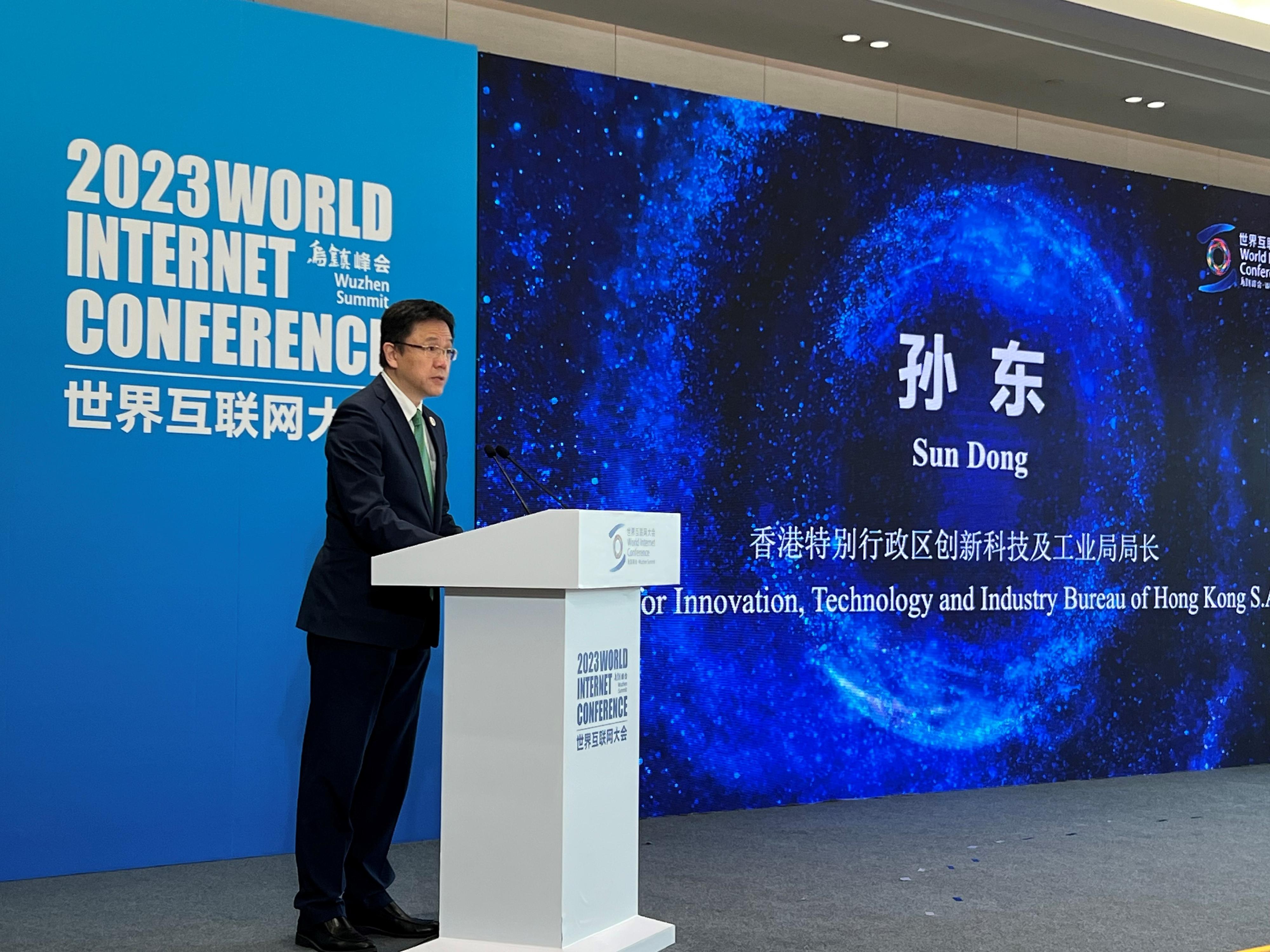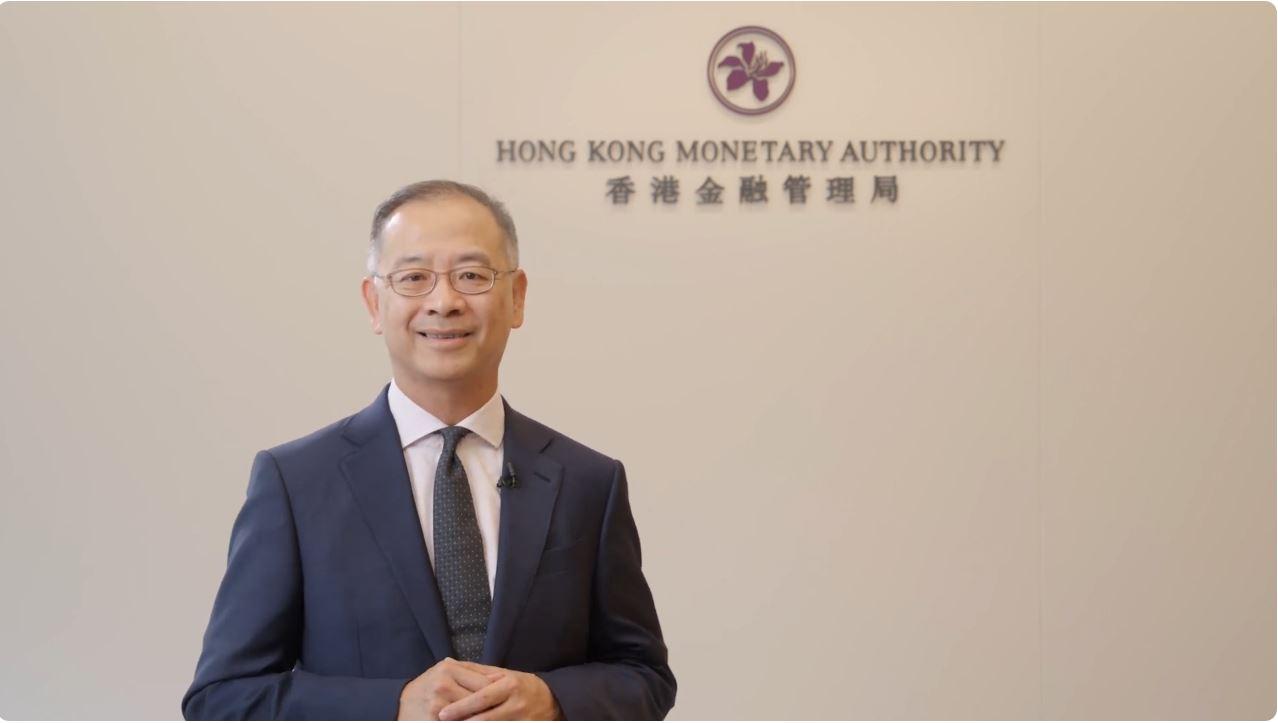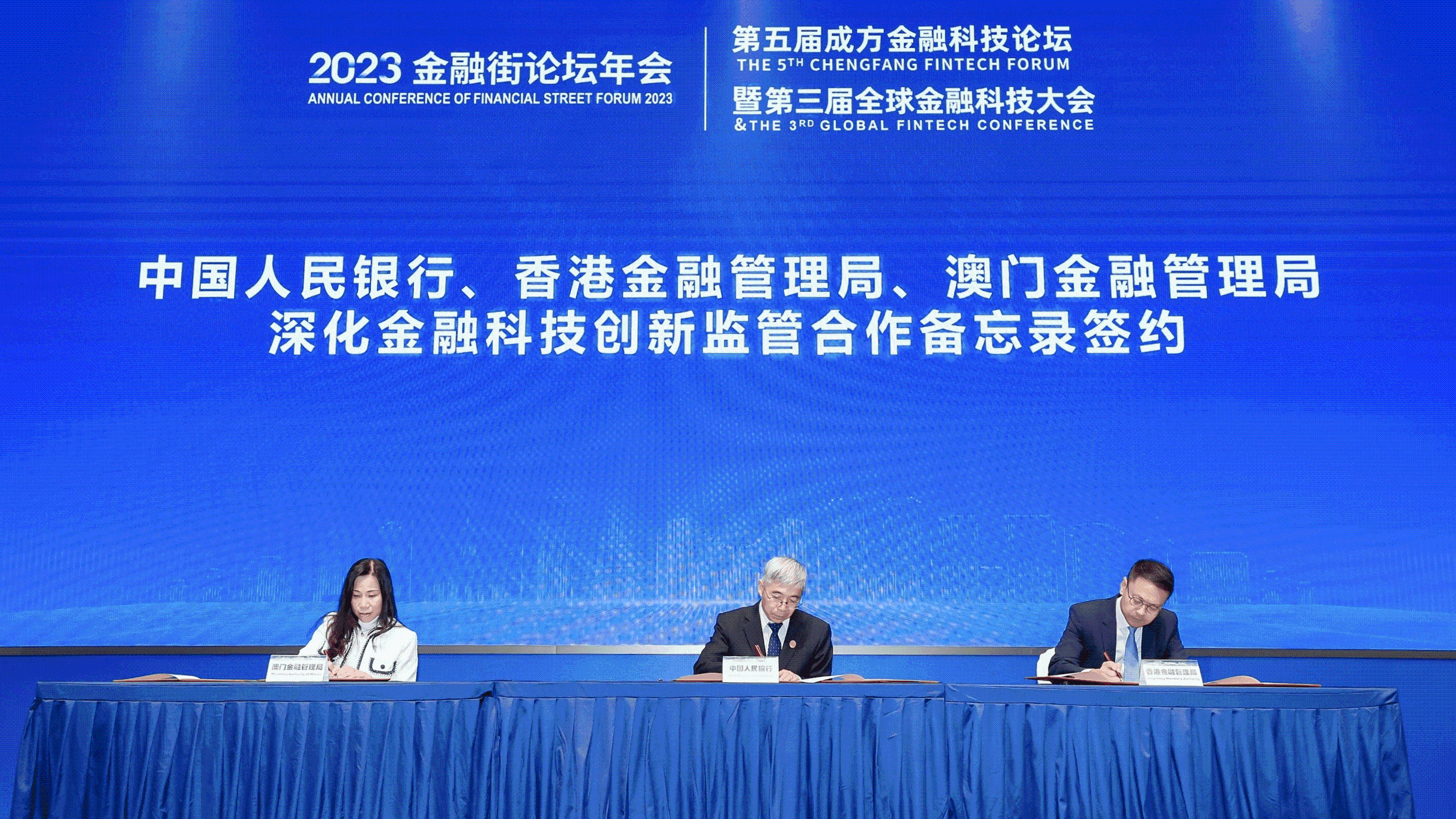SITI attends forum of World Internet Conference Wuzhen Summit (with photo)
The Secretary for Innovation, Technology and Industry, Professor Sun Dong, attended the Cross-Strait, Hong Kong and Macao Internet Development Forum of the 2023 World Internet Conference Wuzhen Summit in Wuzhen, Zhejiang, today (November 9) to share Hong Kong's latest progress in promoting the development of innovation and technology (I&T) and the digital economy.
In his opening speech, Professor Sun said that in developing a digital government, the Hong Kong Special Administrative Region (HKSAR) Government will press ahead with the digitalisation of government services, using artificial intelligence (AI) and opening up more government data to accelerate the development of a digital economy. The Government will also set up the Digital Policy Office, which will be responsible for formulating policies on digital government, data governance and information technology, so as to drive digital-based development and actively participate in the development planning of Digital China. In regard to digital infrastructure facilities, the HKSAR Government will support the expedition of establishing an AI supercomputing centre by Cyberport, which will commence operation in phases starting from next year, with a view to supporting the huge demand for computing power from research and development (R&D) and relevant sectors, and promoting the development of the AI industry.
Professor Sun said, "The HKSAR Government will set up the New Industrialisation Development Office, which will adopt an industry-oriented approach, to promote new industrialisation. We will also set up a $10 billion New Industrialisation Acceleration Scheme to promote the downstream development of new industrialisation by providing financial assistance for enterprises in the fields of life and health technologies, AI and data science, advanced manufacturing, and new energy technologies. Meanwhile, we will initiate preparations next year for the establishment of the third InnoHK cluster to promote global research collaboration with a focus on advanced manufacturing, materials, energy and sustainable development."
Regarding enhancement of the I&T ecosystem, the HKSAR Government has just launched the $10 billion Research, Academic and Industry Sectors One-plus Scheme to promote the transformation and commercialisation of outstanding upstream R&D outcomes of deep technology in the midstream. The Government will also proactively prepare the establishment of the Hong Kong Microelectronics Research and Development Institute next year to lead and facilitate collaboration among universities, R&D centres and industry, thereby fully leveraging the Greater Bay Area's well-developed manufacturing supply chains and enormous market.
Professor Sun continued, "The support of our country is indispensable to Hong Kong's I&T development. It is of paramount importance to proactively integrate into the national development and deepen our I&T collaboration with the Mainland in order to develop Hong Kong into an international I&T centre. This year, the HKSAR Government has signed a series of important I&T agreements with the Ministry of Science and Technology, the Cyberspace Administration of China (CAC), as well as a number of Mainland provinces and cities. We are also collaborating closely with the Guangdong Province and Shenzhen Municipality to take forward at full speed the high-quality and synergistic development of the Hetao Shenzhen-Hong Kong Science and Technology Innovation Co-operation Zone."
Professor Sun also met with Deputy Director of the Office of the Central Cyberspace Affairs Commission and Deputy Director of the Cyberspace Administration of China Mr Wang Song. In the meeting, Professor Sun briefed Mr Wang on the relevant work progress since the signing of the "Memorandum of Understanding on Facilitating Cross-boundary Data Flow Within the Guangdong-Hong Kong-Macao Greater Bay Area" in June this year, and expressed heartfelt gratitude to the CAC for its proactive efforts and support in facilitating the process. He also gave a brief introduction on strategies to promote the development of I&T and digital economy outlined in the Policy Address. The Government Chief Information Officer, Mr Tony Wong, also joined the meeting.
In the Summit today, Mr Wong also delivered a keynote speech at the Cybersecurity Forum for Technology Development and International Cooperation and spoke at the Data Governance Drives the Development of Global Digital Economy forum.
Professor Sun concluded his visit and will return to Hong Kong this afternoon.


